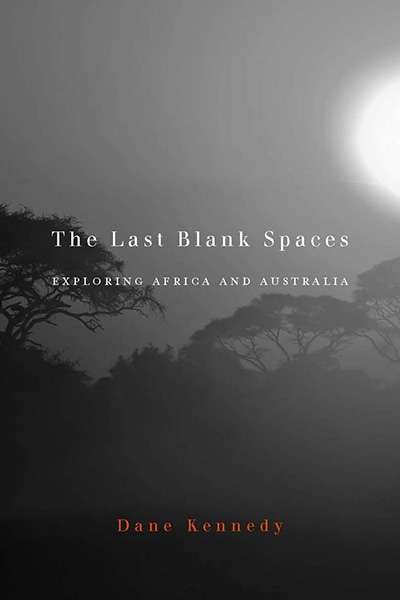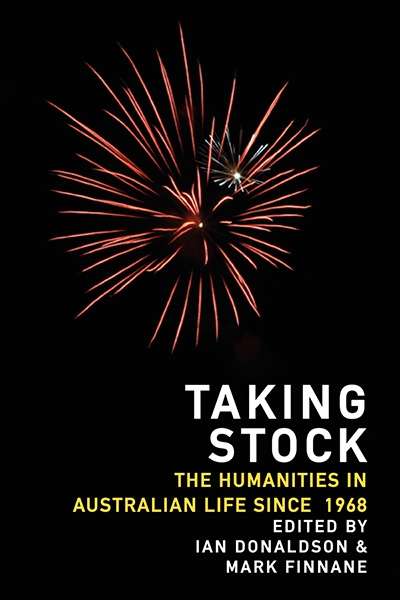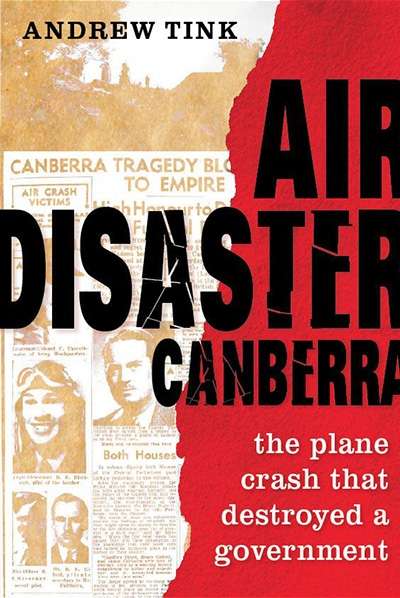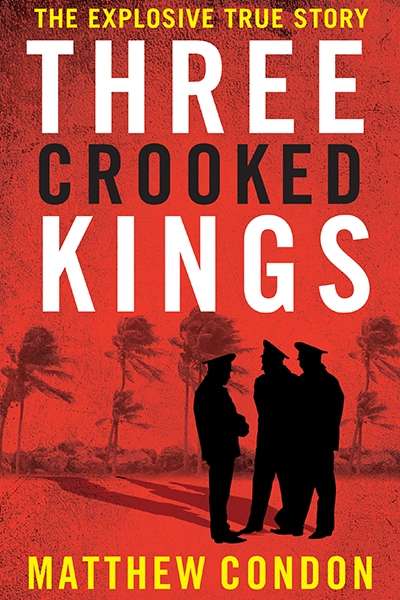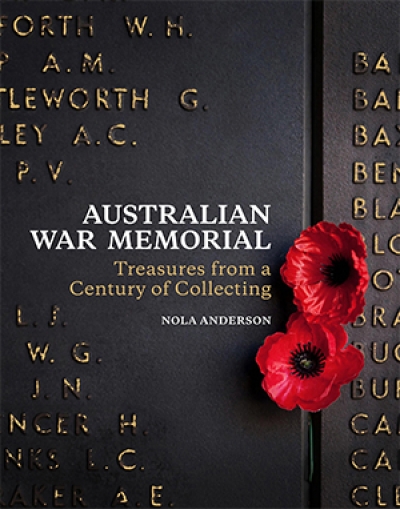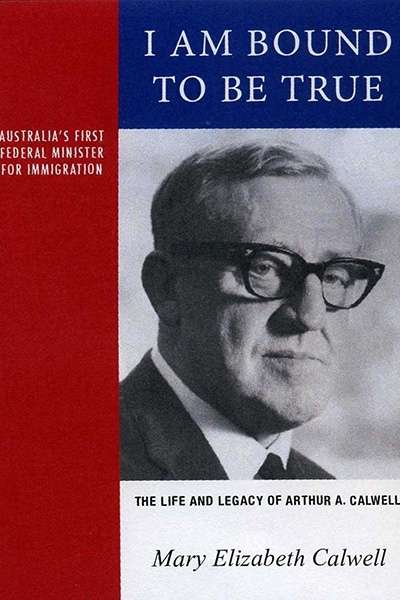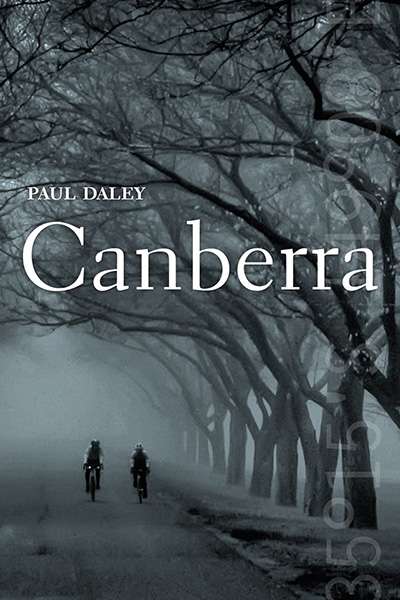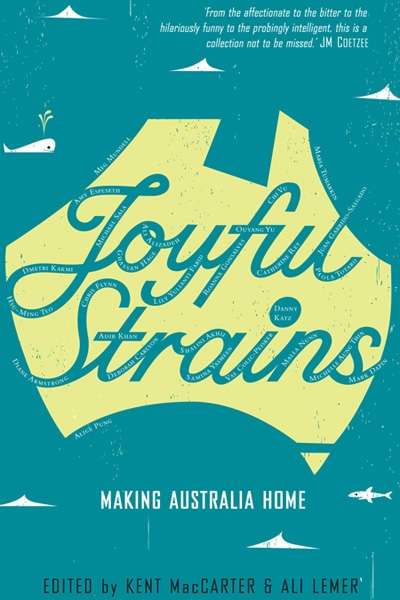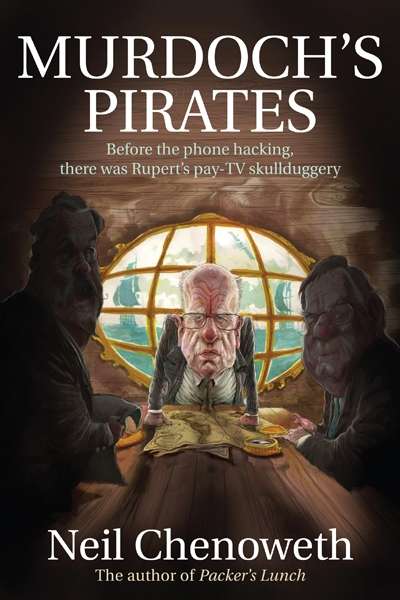Australian History
The Last Blank Spaces: Exploring Africa and Australia by Dane Kennedy
Dane Kennedy reminds us that not so long ago exploring held an honoured place among recognised professions. Today, though, the job is extinct. For about a century and a half, the business of exploration was most vigorously pursued in Africa and Australia, yet among the thousands of volumes devoted to ...
... (read more)Taking Stock: The Humanities in Australia edited by Mark Finnane and Ian Donaldson
This is a highly intelligent collection of essays by some of the nation’s finest minds about the ebb and flow of intellectual endeavour in the humanities since the institution of the Australian Academy of the Humanities in 1969. In the thirty-one essays – built around keynotes, panels, and responses – there are too many gems among them for me to be willing to pick out individual contributions for particular attention. If you care for the life of the mind and for our culture, download the e-book and peruse it, according to your interests. These are mainly stories of success, in transforming disciplines and the like. Less flatteringly, they are also a reminder that the humanities were more central in Australian universities back in 1969 than now.
... (read more)Air Disaster Canberra: The plane crash that destroyed a government by Andrew Tink
On 13 August 1940 a Hudson Bomber travelling from Melbourne crashed near Canberra, killing all ten people on board. Three of the deceased were federal ministers: Geoffrey Street (army minister), Sir Henry S. Gullett (vice-president of the Executive Council), and James Fairbairn (minister for air and civil aviation). Also on board that day was Cyril Brudenell Bingham White, a senior Army officer (chief of the general staff).
... (read more)In April 2012, barely a week after Queensland had elected a conservative government to office for the first time in twenty-six years, Campbell Newman announced the abolition of the state-funded premier’s literary awards. The decision, despite disingenuous claims to the contrary, was entirely symbolic, coming as it did before Newman’s Liberal National Party had been officially sworn in or had articulated anything approaching a comprehensive fiscal policy. It was an early portent of a regression to a time when philistinism was celebrated and executive power ran uncurtailed. Soon the premier was using his maiden parliamentary speech to pay tribute to his conservative predecessor Joh Bjelke-Petersen, who narrowly avoided a criminal conviction on the back of one of the most infamously tainted juries in Australian legal history. More recently, amid a host of controversies over ministerial nepotism and shady deals, the government has undertaken a sustained attack upon the Crime and Misconduct Commission, the very organisation formed in response to the rampant treachery of the Bjelke-Petersen era. It may be the self-professed smart state, but former Police Commissioner Ray Whitrod put it best in his memoir: ‘Queenslanders are not like other Australians.’
... (read more)Australian War Memorial: Treasures from a Century of Collecting by Nola Anderson
The Australian War Memorial has become a kind of national cathedral. Those who visit Canberra for the first time feel that they must see it. It fascinates nationalists, those who are entranced by past wars, those who love displays of technology, relatives of the war dead, those attracted to family history, and the countless visitors who unknowingly seek heroes outside the sporting and theatrical arenas where money is king. There were said to be no cash registers at Gallipoli and Kokoda.
... (read more)I Am Bound to be True: The Life and Legacy of Arthur A. Calwell, 1896–1973 by Mary Elizabeth Calwell
Arthur Augustus Calwell is hardly the most celebrated or mythologised politician in the history of the Australian Labor Party. His achievements as the first minister for immigration have been overshadowed by his very public advocacy of the White Australia policy ...
... (read more)Canberra by Paul Daley & The Invisible Thread: One Hundred Years of Words edited by Irma Gold
Canberra leads a double life: by day the federal capital, crafting legislation and performing on the world stage; at night it is transformed into a suburban neighbourhood where people cook their meals and pay their bills and water their gardens. But a pervasive view of Canberra is that it is the home only of public servants on secondment; that it is just a waste of a good sheep paddock. This is a stereotype in which I was instructed pretty much as soon as I arrived in Australia in the early 1990s. On my first visit to Canberra I saw exactly what I had been schooled to see: low-rise buildings emanating a dull power; orderly but sparsely populated streets. Not until moving here at the end of the 1990s did I come to know the quotidian nature of the town, the disorder lurking just below the bureaucratic structures, and the raffish, dreamy quality that is a remnant of Walter Burley Griffin’s adulterated plans.
... (read more)Joyful Strains: Making Australia Home edited by Kent MacCarter and Ali Lemer
It is a brilliant summer day in July 1935. The scene is a house called Green Ridges, near Hastings, Sussex. Two women, seated but not relaxed, face each other across a formal drawing room. This is the first time they have met. Nettie Palmer, Australian writer and journalist, has come to stay overnight with the novelist Henry Handel Richardson.
... (read more)Murdoch’s Pirates: Before the Phone Hacking, There Was Rupert’s Pay-TV Skullduggery by Neil Chenoweth
Talk about unfortunate timing. On 10 December 2012, the New Yorker ran a lengthy profile on Elisabeth Murdoch, the older sister of Lachlan and James. Elisabeth, forty-four, lives in Britain, where – while her siblings have been marked down for everything from, in Lachlan’s case, One.Tel to Ten Network and, in James’s case, MySpace and phone hacking – she has quietly built a reputation as a savvy television producer and businesswoman. The profile is a public relations hosanna – unsurprising given that Elisabeth’s husband, Sigmund Freud’s great-grandson Matthew Freud, is a flack with his own PR firm – with the title declaring its subject to be, in capital letters, THE HEIRESS. The subheading simply states: ‘The rise of Elisabeth Murdoch.’
... (read more)

